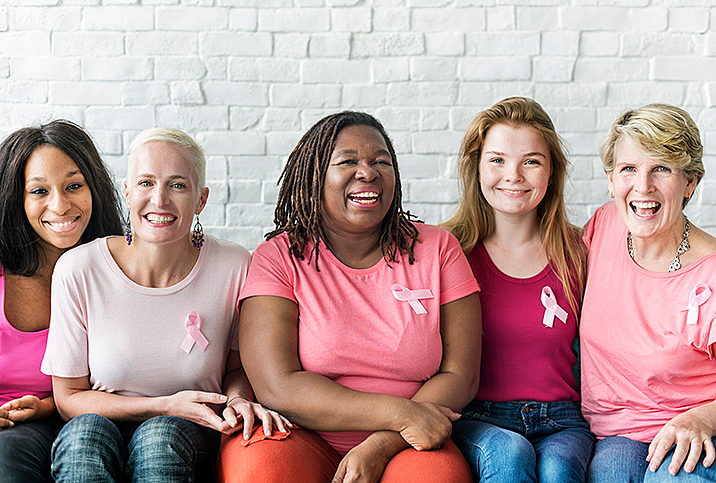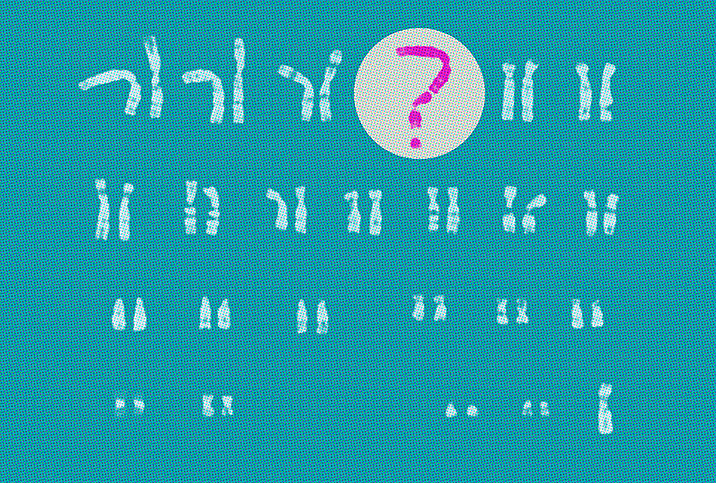Inherited Risk: What to Know About the BRCA Gene

It's a well-known fact that some forms of cancer can be inherited from your parents, and that includes breast cancer. The BRCA genes are what allow your body to fight off unwanted cancerous tumors, but if you've inherited a mutated version of these genes, you may have a higher chance of developing breast cancer or ovarian cancer.
We've broken down everything you need to know about the BRCA genes, including different mutations and how to get tested for them.
What is the BRCA gene mutation?
Everyone gets their own BRCA genes from their biological parents. If one or both of your parents has a mutated gene, you have a high chance of also having one. According to the Centers for Disease Control and Prevention (CDC), an estimated 1 in every 500 women in the United States has a mutated BRCA gene.
There are two different types of BRCA genes, BRCA1 and BRCA2, and either of these genes can be mutated. Different BRCA mutations have also been found to have an increased association with certain types of cancers.
The BRCA1 mutation is associated with an increased risk of breast cancer, including a more aggressive type known as triple-negative breast cancer, ovarian cancer, pancreatic cancer and prostate cancer. Although the BRCA2 mutation is also associated with the same types of cancer, it is also linked to melanoma, a type of skin cancer.
How can you get tested?
At what point should you consider getting tested for the BRCA mutations? If you have a family history of breast cancer or other cancers, genetic testing may help you to find out if you're at higher risk.
"According to the Centers for Disease Control, women who are in the age range of 50 to 74 years old should conduct preventive mammograms and preventative breast cancer screenings. Knowing your family history as well as taking risk assessments can also determine the frequency of screening required," said Bonni Lee Guerin, M.D., director of the Breast Cancer Treatment and Prevention Program at Overlook Medical Center in New Jersey.
"For example, patients who have a family history of breast cancer should begin screening earlier," Guerin said. "As a baseline, if you have a family member who has been diagnosed with breast cancer, you should begin screening 10 years earlier than the age your relative was diagnosed."
While family history is often a significant indicator of whether someone is at risk of having breast cancer or the BRCA mutations, there are other factors that can also suggest you may need to be tested for the mutation.
"If a patient or individual has several relatives with breast cancer [they are at a higher risk], especially a relative who has breast cancer prior to the age of 50, any relatives with ovarian or pancreatic cancer, a male relative with breast cancer or advanced prostate cancer, and individuals of Ashkenazi Jewish ancestry," said Faith Renee Goldman, M.D., a fellowship-trained breast surgical oncologist with Atlantic Medical Group in New Jersey.
As for how the test works? Well, it's actually a lot easier than you'd think and requires only a small blood sample, which is then sent to a genetic testing lab to see if you have a mutation. If you have been diagnosed with breast cancer already, chances are your oncologist will automatically order this test for you as it can help them decide how to treat your cancer and prevent it from progressing.
What happens if you test positive?
"According to FORCE, a nonprofit organization that specializes in hereditary cancers, once someone tests positive for the BRCA1 or BRCA2 genetic mutations, it is important to seek and assemble a specialized team who can provide you with the best care possible," Goldman said. "Specifically, find the most knowledgeable experts for your situation now and in the future, as many areas of cancer and genetics are advancing rapidly, and not all healthcare professionals have equal experience on a given topic."
Your treatment option also depends a lot on your situation. If you have already been diagnosed with breast cancer, your treatment options depend largely on the type and stage of cancer you have. Treatments can include surgery, a mastectomy, chemotherapy or radiation. However, if you test positive for the BRCA gene mutation but don't and have never had cancer, your healthcare provider may discuss preventive measures with you.
"There are medications available that can lower your risk of contracting breast cancer as well as ovarian cancer," Guerin said. "Patients should consult their oncologist to decide if medication is the proper route to take.
"As a more intense preventative measure, women who have high-risk BRCA gene mutations can undergo preventative surgeries, such as a double mastectomy, before cancer develops," she said. "Although considered extreme, this is a route that will eliminate approximately 90 percent of the risk."


















